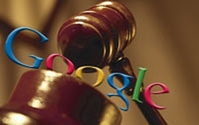Android Users Drop Privacy Case Against Google
- by Wendy Davis @wendyndavis, September 25, 2014
 A group
of Android users who brought a class-action privacy lawsuit against Google have dropped their case, according to court papers filed on Thursday.
A group
of Android users who brought a class-action privacy lawsuit against Google have dropped their case, according to court papers filed on Thursday. The court papers, which state that no money changed hands, don't offer a reason for the seemingly abrupt decision. “No financial or other consideration to plaintiffs or plaintiffs’ attorneys has been paid or otherwise agreed to in exchange for this dismissal,” states the stipulation of dismissal, which is awaiting the signature of U.S. District Court Judge Jeffrey White in San Jose, Calif.
Google and the lead lawyer for the consumers haven't yet responded to Online Media Daily's request for comment about the development.
The legal battle dates to 2011, when a group of users filed a lawsuit alleging that Google violated their privacy by transmitting their personal information -- including geolocation data and unique device identifiers -- to app developers. The consumers, who installed apps like Angry Birds and Pandora, said in their complaint that Google misled users about the data transmission.
The suit came soon after researchers reported that the majority of the most popular 101 apps for iPhone and Android phones sent their unique identifiers to other companies.
Google made at least two prior attempts to convince White to throw out the case. In May 2013, White granted Google's request and dismissed the lawsuit, but without prejudice. That ruling enabled the consumers to beef up their allegations and try again.
The users then brought a second complaint, which Google also sought to have dismissed. The company's effort was only partially successful. In March, White narrowed the case by dismissing an allegation that Google violated a federal computer fraud law, but he allowed the consumers to proceed with claims that Google violated a California law prohibiting unfair business practices.
White recently scheduled the matter for a February 2015 conference.
Google wasn't the only company to face litigation for allegedly transmitting device identifiers to app developers. A similar lawsuit against Apple was dismissed last year. In that case, a group of consumers alleged that Apple misrepresented its privacy practices. Last November, U.S. District Court Judge Lucy Koh ruled that the consumers couldn't proceed because they lacked evidence that they read Apple's privacy policy before purchasing an iPhone or iPad.


